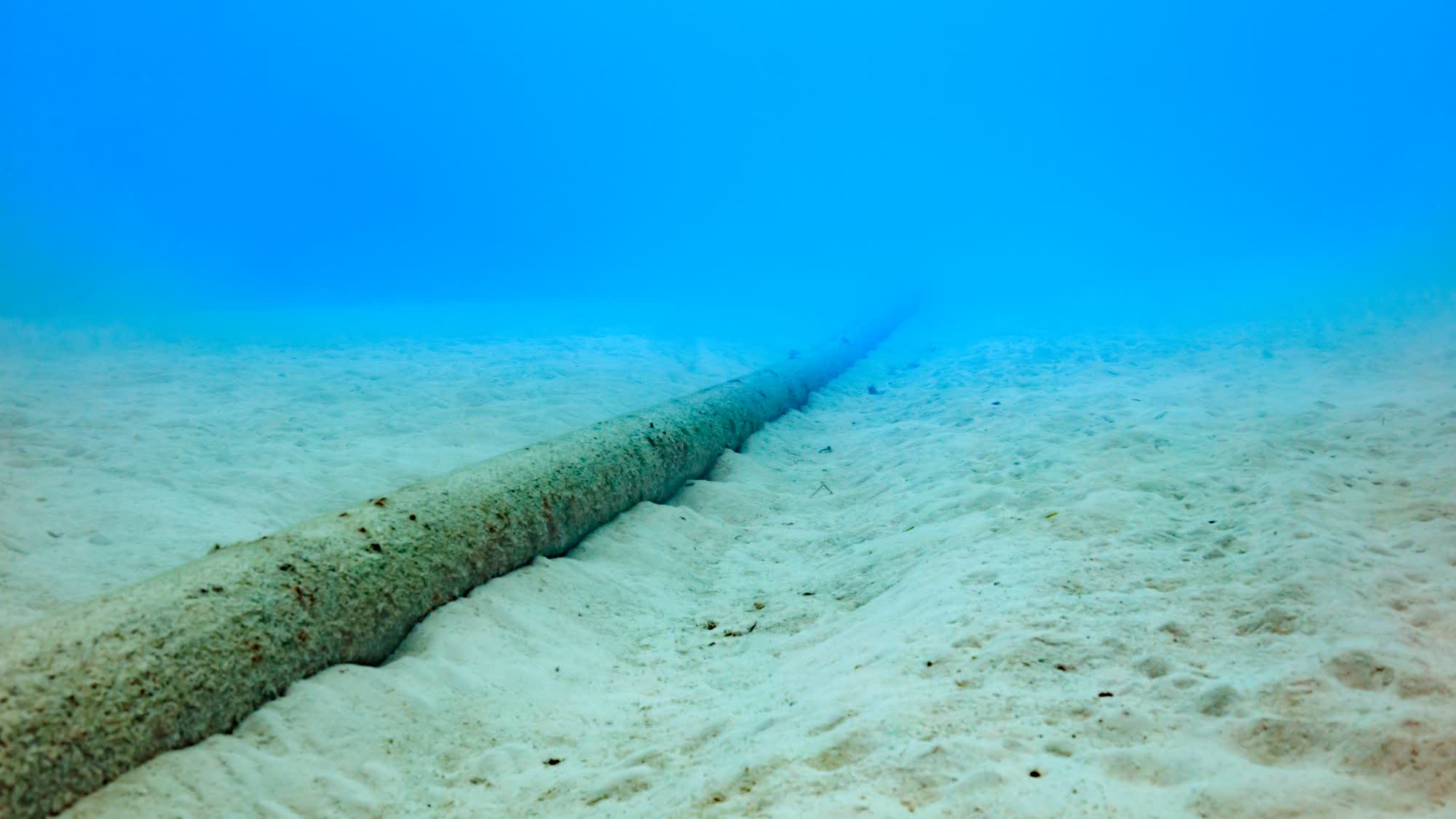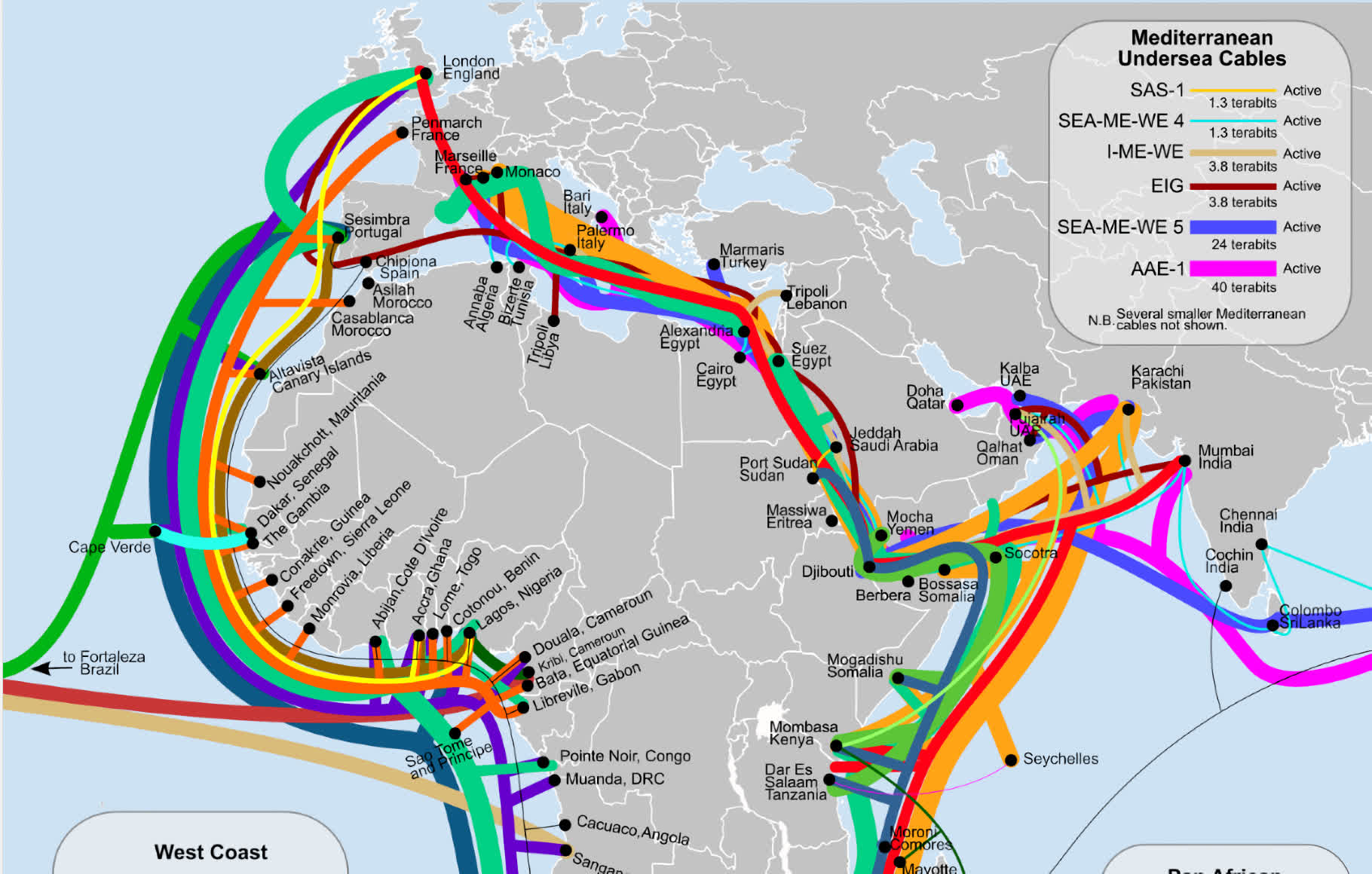In brief: Fears that a rogue nation could attack undersea cables as a way of impacting internet connectivity and digital communications have risen in recent times. To prepare for the worst, NATO is helping to finance a project that will investigate a way of keeping the internet running should the cables be sabotaged: rerouting data through satellites.
Increasing geopolitical tensions have raised concerns that countries such as Russia, China, and North Korea could target subsea cables during a military crisis. Such a thing is not unprecedented; Yemeni Houthi rebels were suspected of damaging underwater Red Sea cables responsible for 17% of global internet traffic in February. Elsewhere, Sweden said in October that damage to a Baltic subsea cable linking Estonia and Sweden was "purposeful."
Bloomberg reports that researchers, including academics from the US, Iceland, Sweden, and Switzerland, want to develop a way of seamlessly rerouting internet traffic from subsea cables to satellite systems in the event of an attack or damage from natural disasters.

NATO believes the project is worthwhile. The organization's Science for Peace and Security Programme has approved a grant of as much as $433,600 for the $2.5 million project, and research institutions are providing their own contributions, according to documents seen by Bloomberg.
Eyup Kuntay Turmus, adviser and program manager at the NATO program, said implementation of the project is due to begin "very soon." However, researchers will spend two years testing prototypes and dealing with international regulations and "very messy" laws before a working operational system can be created.
Sweden and Iceland are among the countries interested in the project. Már Magnússon, a law professor at Bifröst University in Iceland, said, "You would need three or four bombs to just cut off Iceland and its communications."
US firm Viasat Inc., whose satellite internet system was hacked on the day of Russia's invasion of Ukraine, is participating in the effort. Space tech company Sierra Space Corp. and Icelandic cybersecurity company Syndis are also involved.
One part of the project is to examine ways of detecting threats to undersea cables more effectively to determine when traffic needs to be rerouted. While cable network operators can detect disturbances on a cable down to the nearest kilometer, the project wants to reduce this to the nearest meter.
NATO says that almost all of the organization's internet traffic travels through the undersea cables, as does data that accounts for around $10 trillion of financial transactions.
The impact stemming from undersea cables failing was seen in March when a massive internet outage hit West and Central Africa.
NATO established a center to coordinate best practices to protect undersea infrastructure following the explosion that destroyed the Nord Stream 2 pipeline in September 2022.
It's not just NATO that's aware of these dangers. The European Commission recently warned that undersea cables need their security and resilience improved in light of increasing global tensions.

